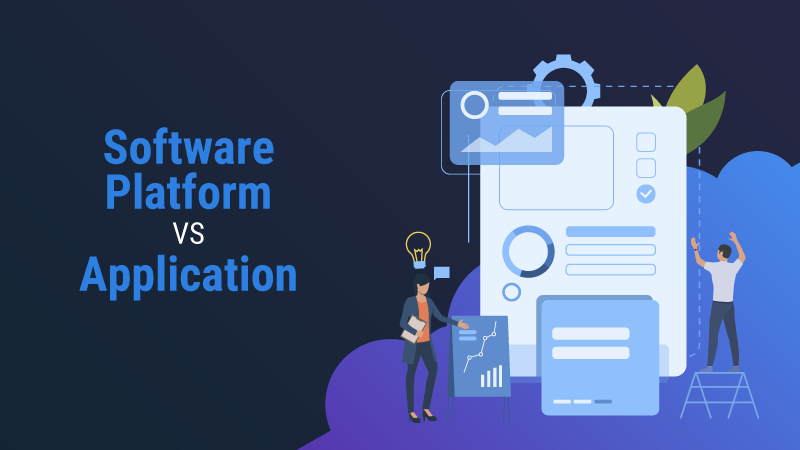Over the past few years, we have seen a rapid leap in the use of the term software platform. All kinds of software applications came to be called platforms but the fact is that the term platform has an entirely different meaning that distinguishes it from software applications. A platform allows software applications to function on it so that the end-users can use them. It is very much necessary to distinguish both terms in order to make it easier to answer relevant questions like how to decide which platform should be used for software development services.
What is a Software Platform?
A platform refers to any hardware or software where an application or service is hosted. A software platform is an environment designed to write and run applications. It consists of many software tools like GUI builders, compilers, and utilities. Software platforms are designed to enable applications to function together without interruptions or integrations. It can also support different programming languages, engines, and web services.
A software platform lies between the hardware of a system and every other application on the system. It consists of APIs and services that can be integrated in an unrestricted manner to build an unlimited number of applications. The OS (operating system) in a desktop or a mobile is an example of a software platform, which is not only responsible for the functioning of the in-built apps but also responsible for other third-party applications like Instagram, Google services, Spotify, etc. Software platforms are designed for scaling up and operating different programs based on business requirements. Businesses that purchase a software platform also have the option to customize the platform that needs certain development on the existing framework. In short, a platform is an infrastructure for applications to run.
What is a Software Application?
A software application, also known as an application program, is designed to fulfill or run a specific task either for an end-user or for another application. A software application can be a single or a bunch of programs and it normally uses the operating system of a computer or the native programs to function. It is impossible for any user to perform any task without a software application. Moreover, a software application interacts directly with the user.
Software Platform v/s Application
- A software application is a set of programs used to perform a specific task on a computer or mobile while a software platform is a kind of operating system that supports in-built as well as third-party apps.
- A software application converts data into information. On the other hand, a software platform serves as an environment for hosting applications.
- A software application is a combination of computer programs, related configuration files, documentation, etc. functioning together. On the other hand, a software platform includes a hardware device and operating system on which an application, program, or operates.
- Some examples of software applications include Google Chrome, skype, slack, WhatsApp, MS Word, etc. Some examples of software platforms include IMB I, Microsoft’s .NET framework, and SUN’s Java.
Wrap Up
You can see a clear difference between a software application and a platform from the basic characteristics, yet many still get confused between a software application and a platform, not in terms of their functioning but when it comes to addressing each term. This article explains the differences between a software application and a software platform in the simplest way.
Get Started with our Custom Software Development Services